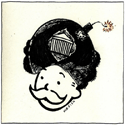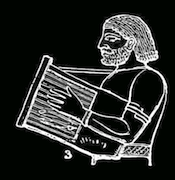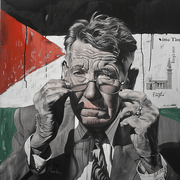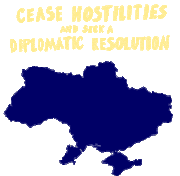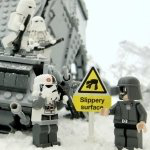|
Turkey hit a SAA convoy crossing at Ziyarah https://twitter.com/JOHTURK1/status/966737159154790402/photo/1 HorrificExistence fucked around with this message at 22:08 on Feb 22, 2018 |
|
|
|

|
| # ? May 23, 2024 11:11 |
|
Volkerball posted:https://twitter.com/abdullahawez/status/966625879974703104?ref_src=twcamp%5Ecopy%7Ctwsrc%5Eandroid%7Ctwgr%5Ecopy%7Ctwcon%5E7090%7Ctwterm%5E1 They are both derived from the same totalitarian stock so that does not surprise me to me honest. I actually that the YPG would throw their lot with the Assadists sooner.
|
|
|
|
OhFunny posted:https://twitter.com/nytimes/status/966718009338400768 Lol thanks Obama.
|
|
|
|
icantfindaname posted:I had a random historical question: How close did Saddam come to losing the Iran Iraq war? If the US hadn’t supported him how likely would have been him being overthrown in a sort of exported Iranian revolution, like if Trotsky had won the Polish-Soviet war and drove all the way to Berlin? Well by "lose" I'll take to mean Iran would have succeeded in taking Najaf & Karballah. For that: Not close at all as they failed to claim Basra. Their mechanization was poor and would struggle to maintain their lines even if they did succeed there in a scenario where Iraq lacked the heavy arms coming from abroad. Just look at where they are on a map compared to the border & Tigris and Euphrates.
|
|
|
|
Punkin Spunkin posted:I thought the Americans were arming both sides, just way more for Saddam? Figured most countries just wanted to watch Iraq and Iran bleed each other, neither achieving any sort of absolute dominance The biggest way the US armed Iran in the Iran/Iraq war was with all the military support they had given the Shah in the decades before the revolution. Khomeini didn't get much support from anyone. Saddam fought the war like a moron, threatening to kill anyone who retreated, even if a tactical retreat was the right move, which played a big role in giving Iran the upper hand. But the way the war is framed in Iran, with the Iranian people fighting the entire world and winning, is not far from the truth. GreyjoyBastard posted:lol didn't you get the boot because you were rigging elections too mu- What I'm saying is that he benefited from that system for years and never had a word to say about it. He's only saying it's bullshit now because it's what people want to hear. Same deal with him attacking reformists from the economic left in the lead up to the last presidential election. It did earn him some approval but I doubt many people trust him any farther than they can throw hi-, wait poo poo he's just a little guy. Well you know what I mean.
|
|
|
|
OhFunny posted:https://twitter.com/nytimes/status/966718009338400768 the country's going to be using the same aumf generations when all of us are dead and buried.
|
|
|
|
GhostofJohnMuir posted:the country's going to be using the same aumf generations when all of us are dead and buried. Reminder: this autumn, kids who weren't born when the Afghan War started will be old enough to enlist (17). As always, The Onion was prescient: https://www.theonion.com/18-year-old-fighting-in-afghanistan-has-9-11-explained-1819573874/amp
|
|
|
|
Are there any good histories of the iran Iraq war anyone knows? Guess I could ask in the book barn I'd be interested to know more. Like if the Iraqis were that tactically incompetent was it just a matter of the Iranians being about as crazy + incompetent too? I mean y'all talk about the Saddam no retreat thing but the Iranians did have Suicide waves and stuff, right?
|
|
|
|
Punkin Spunkin posted:Are there any good histories of the iran Iraq war anyone knows? Guess I could ask in the book barn
|
|
|
|
HorrificExistence posted:Turkey hit a SAA convoy crossing at Ziyarah So what happens when assad and turkey start gassing each other... Id like bets, US + Turkey or US + Kurds + Assad + Russia
|
|
|
|
I'll take 'the international community overlooks NATO and NATO backed insurgent warcrimes' thanks.
|
|
|
|
WhiskeyWhiskers posted:I'll take 'the international community overlooks NATO and NATO backed insurgent warcrimes' thanks. The one universal constant in this uncertain world.
|
|
|
|
Savy Saracen salad posted:They are both derived from the same totalitarian stock so that does not surprise me to me honest. I actually that the YPG would throw their lot with the Assadists sooner. uh yeah what do you even mean by this
|
|
|
|
Punkin Spunkin posted:Are there any good histories of the iran Iraq war anyone knows? Guess I could ask in the book barn I read this one, and found it ok: The Longest War: The Iran-Iraq Military Conflict Its written by an Indian dude. It means his use of language can be a bit odd, so its clear but doesn't flow that well. I like the guy though because he doesn't write from a Western perspective, so you get some different insights once in a while. Its also not a very long read.
|
|
|
|
Punkin Spunkin posted:Are there any good histories of the iran Iraq war anyone knows? Guess I could ask in the book barn Suicide waves are also whenever non-mayo troops attack without sufficient support. If someone tells me the frontal section attack isn’t suicide against an emplacement(without support) isn’t suicidal, I disagree. When you don’t have the appropriate support a lot of modern warfare is suicidal.
|
|
|
|
SoggyBobcat posted:Someone did a series of effort posts about the Iran-Iraq War in the MilHist thread in A/T, if you want to try and search for them: https://forums.somethingawful.com/showthread.php?threadid=3785167 Good point coldwar timewarp...and thanks for the reading tip Roland ill check that out, wanted some non western perspectives. I'll ask book barn too.
|
|
|
|
Trump today: "We're there for one reason, we're there to get ISIS and get rid of ISIS and go home. We're not there for any other reason and we've largely accomplished our goal." It doesn't mean anything though, since his administration is just going to ignore him until he gets distracted by a piece of yarn or something https://www.youtube.com/watch?v=-z4XZzJ12I4&t=1585s
|
|
|
|
I don't really understand how something like leaving troops in Syria indefinitely gets virtually zero press. Is there no opposition to this anywhere?
|
|
|
|
TOS-1 and Tochka in action. https://twitter.com/QalaatAlMudiq/status/966649888565006336 https://twitter.com/QalaatAlMudiq/status/967104512233230337
|
|
|
|
Count Roland posted:I don't really understand how something like leaving troops in Syria indefinitely gets virtually zero press. Is there no opposition to this anywhere? also we have a volunteer military composed mostly of people from lower and middle class families so huge swaths of America have no personal stake in any of our armed conflicts.
|
|
|
|
Count Roland posted:I don't really understand how something like leaving troops in Syria indefinitely gets virtually zero press. Is there no opposition to this anywhere?
|
|
|
|
https://twitter.com/NorthernStork/status/967058947889926145
|
|
|
|
Coldwar timewarp posted:Suicide waves are also whenever non-mayo troops attack without sufficient support. If someone tells me the frontal section attack isn’t suicide against an emplacement(without support) isn’t suicidal, I disagree. When you don’t have the appropriate support a lot of modern warfare is suicidal. Yeah, and especially early in the war these problems were magnified because the revolution left the Iranian officer Corp in disarray. Western media liked to portray the Iranian leadership as callous leaders sending boys to die in human wave attacks. While a lot of Iranians did die in hopeless attacks, this was more often due to incompetence and disorganization than the result of an intentional strategy. Unfortunately I’ve had a hard time finding good information on this as western researchers have poor access to Iranian records and there’s a lot of political distortion that colors the conflict.
|
|
|
|
Kanine posted:uh yeah what do you even mean by this "The oriental mind is inherently authoritarian."
|
|
|
|
Presenting: The most likely first hotspot for water wars - Egypt! https://www.youtube.com/watch?v=G_8X8tbjqjg
|
|
|
|
WhiskeyWhiskers posted:"The oriental mind is inherently authoritarian." Or maybe the PKK and it's offshoots can't escape their Leninist roots.
|
|
|
|
Wez posted:Or maybe the PKK and it's offshoots can't escape their Leninist roots. good
|
|
|
|
Squalid posted:Yeah, and especially early in the war these problems were magnified because the revolution left the Iranian officer Corp in disarray. Western media liked to portray the Iranian leadership as callous leaders sending boys to die in human wave attacks. While a lot of Iranians did die in hopeless attacks, this was more often due to incompetence and disorganization than the result of an intentional strategy. Unfortunately I’ve had a hard time finding good information on this as western researchers have poor access to Iranian records and there’s a lot of political distortion that colors the conflict. What about the waves of kids (or teenagers, whatever) that were sent out? They were given symbolic keys to heaven, because they knew they were being sent to die. From what I've read they weren't even coerced, though of course you could call religious/nationalist brainwashing a form of coercion if you want to.
|
|
|
|
Punkin Spunkin posted:Are there any good histories of the iran Iraq war anyone knows? Guess I could ask in the book barn Polyakov did the effort posts in the MilHist thread, starting here: https://forums.somethingawful.com/showthread.php?threadid=3785167&userid=185704&perpage=40&pagenumber=3#post469000723
|
|
|
|
Grouchio posted:Presenting: The most likely first hotspot for water wars - Egypt! Wow 85% of Cairo’s Nile water comes from the Blue Nile? That’s crazy, I would’ve thought the outlet from Lake Victoria would be more than a small fraction. If that video is accurate anyway and not an Egyptian propaganda piece. Although not exactly the first water war by a long shot. Just off the top of my head there was also the ultra high altitude space battles between Pakistan and India over controlling the Siachen glacier that forms the source of the Ganges.
|
|
|
|
Recommending both these as good things to devote a little time to, though I would argue syria as a modern water war, at least for the origins of it.Grouchio posted:Presenting: The most likely first hotspot for water wars - Egypt! catfry posted:Polyakov did the effort posts in the MilHist thread, starting here: https://forums.somethingawful.com/showthread.php?threadid=3785167&userid=185704&perpage=40&pagenumber=3#post469000723
|
|
|
|
https://twitter.com/muhammadnajem20...90%7Ctwterm%5E1
|
|
|
|
Saladman posted:Although not exactly the first water war by a long shot. Just off the top of my head there was also the ultra high altitude space battles between Pakistan and India over controlling the Siachen glacier that forms the source of the Ganges. Wait what's this about a space battle?
|
|
|
|
BattleMaster posted:Wait what's this about a space battle? The Siachen Glacier ranges from 3.6 to over 5,7 km height. Fighting on that kind of altitude is a lot like fighting in space, I imagine. Edit: Temperatures can go down to about -50 °C, according to Wikipedia. Yep, that's almost as hostile as space. Libluini fucked around with this message at 13:20 on Feb 24, 2018 |
|
|
|
Helicopters have a hard time operating that high up, which makes things interesting. For a book on the subject of of Himalayan fighting, see War at the Top of the World by Eric Margolis. The author is of the anti-imperialist bend and he gets probably a bit too cozy with the pashtun and pakistani fighters he hangs out with. But I don't think you'll find many other first hand accounts from western journalists. These wars and skirmishes are normally kept pretty quiet by their respective governments.
|
|
|
|
Wez posted:Or maybe the PKK and it's offshoots can't escape their Leninist roots. considering the success of the anarchist-influenced bookchinite/apost revolution in rojava is going i dont think so
|
|
|
|
Count Roland posted:What about the waves of kids (or teenagers, whatever) that were sent out? They were given symbolic keys to heaven, because they knew they were being sent to die. From what I've read they weren't even coerced, though of course you could call religious/nationalist brainwashing a form of coercion if you want to. A while ago I spent some effort looking into looking into this topic. I was looking for every interview I could find with Iranian soldiers who fought in the war, and read a lot of journalistic pieces written during the war. Many, many western journalists described the golden keys in great detail, what they meant, why they were distributed etc, what they looked like. Oddly though, no Iranian soldiers ever seemed to mention the keys, nor were there ever any pictures of them. They never came up even in interview's from Saddam's pow camps, where Iranians were rewarded with better food and recreation for talking badly about the revolution to western journalists. Looking back on the NYtimes articles and many other pieces that mention the keys, in most cases the writer did not see the keys their self. Maybe they heard it from a Russian colleague in Tehran, or they know a guy who knows a guy that swears he saw them distributed in the mosques. Usually these writers were based in Baghdad, and were overtly hostile to the revolutionary government. Logic of course means we can't prove a negative, that is we can't prove there were no keys. However there is no robust evidence that they ever existed. They were almost certainly a fabrication by inventive writers desperate for something to fill column space. The story is repeated because it seems to incapsulate some greater truth about the callousness and hypocrisy of the Iranian government. You can find it in serious scholarly work looking on google, but in such cases I've never seen it cited. There is no source that is remotely reliable. Marjah Satrapi offers the anecdote in her book Persepolis, however even in that case she hears of the key second hand from the mother of a boy who fights in the war, and she spent many of the war years living in Austria where she could have been exposed to the story by western media, and was not necessarily trying to recount conversations she had had word for word 20 years prior to the book's publication. I didn't just come to this conclusion on my own, wikipedia makes the same note. For one example of a good interview with an Iranian soldier, there's a Canadian documentary about two veteran immigrants, one Iraqi, one Iranian, who become friends. https://www.youtube.com/watch?v=A7xJxBuegG4 spoiler alert: The Iranian saved the Iraqi from summary execution after he was captured
|
|
|
|
https://twitter.com/BBCWorld/status/967401375649927169
|
|
|
|
catfry posted:Polyakov did the effort posts in the MilHist thread, starting here: https://forums.somethingawful.com/showthread.php?threadid=3785167&userid=185704&perpage=40&pagenumber=3#post469000723
|
|
|
|

|
| # ? May 23, 2024 11:11 |
|
Squalid posted:A while ago I spent some effort looking into looking into this topic. I was looking for every interview I could find with Iranian soldiers who fought in the war, and read a lot of journalistic pieces written during the war. Many, many western journalists described the golden keys in great detail, what they meant, why they were distributed etc, what they looked like. Yeah I saw the wiki page too, I read it before I made my post. I found a PDF of Fisk's Great War for Civilization. These "keys to heaven" are not mentioned, though he makes it clear that key or no key these are true believers. I feel like its worthwhile to quote an entire passage here. quote:The Iranians had learned that opposing massed Iraqi armour with poorly
|
|
|







